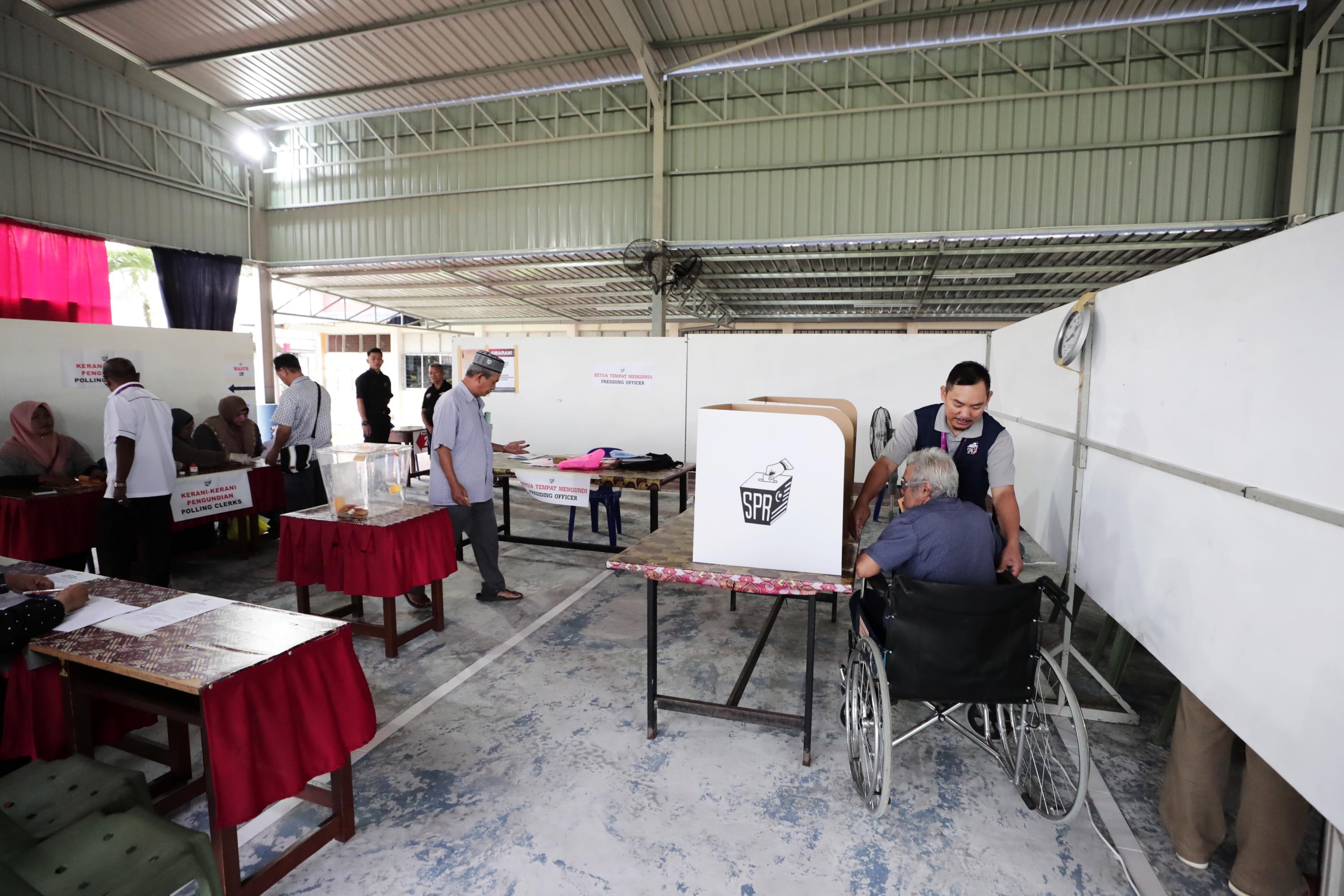Johor polls can go ahead with current health protocols despite Covid-19 surge: Experts
Sign up now: Get insights on the biggest stories in Malaysia

The Election Commission is yet to announce the health protocols for the Johor polls on March 12, 2022.
PHOTO: ST FILE
KUALA LUMPUR - The Johor state election next month can proceed with existing Covid-19 controls, say health experts, despite an Omicron outbreak that has quadrupled Malaysia's daily virus caseload in the first 10 days of February alone.
Safety protocols at the last two elections in Melaka and Sarawak largely banned face-to-face campaigning and public rallies.
Health experts said that changing circumstances - such as Omicron's milder impact and high vaccination coverage - meant that the current wave would be much more manageable for Malaysia than the deadly Delta variant that killed tens of thousands last year.
The Election Commission (EC) has yet to announce health protocols for the Johor polls on March 12, which is near the time when Malaysia is projected to reach the peak of the Omicron wave that looks on course to shatter past daily case records.
The presidential council of the opposition bloc Pakatan Harapan has urged the government to postpone the polls due to the rising number of infections.
"If the government refuses to postpone the election, then campaigning and ceramahs (rallies) must be allowed," it said in a statement on Thursday (Feb 10).
Nearly all forms of physical campaigning were banned during the Melaka election in November last year. Similar protocols were in place for urban areas during the Sarawak elections in December, although rural constituencies with poor Internet coverage were allowed to have physical, face-to-face campaigning.
Both the elections did not cause any noticeable spike in cases, as Malaysia kept its daily caseload low at around 5,000 until the Omicron outbreak started earlier this month, just one week after the Johor state assembly was dissolved to trigger state polls.
Universiti Putra Malaysia (UPM) epidemiologist Malina Osman said that any campaigning activity involving the removal of face masks - such as eating or drinking - should not be allowed, like in the Sarawak election.
"With relatively good vaccination coverage and availability of the self-screening test, we should move on (with recovery). Concern right now would be those who refuse to receive a booster, or parents who deny their children to be vaccinated," Dr Malina told The Straits Times (ST).
About 80 per cent of the population are fully vaccinated, while more than 39 per cent have taken a booster dose.
Some like opposition leader Anwar Ibrahim have called for the Covid-19 protocols to be relaxed for the Johor election.
The ban on physical campaigning led to lower turnouts and a muted campaigning period in Melaka and Sarawak. Opposition parties performed poorly in both elections, and had cited the stringent protocols as among the contributors.
Public health expert Zainal Ariffin Omar told ST: "Small groups, short talks, distributing pamphlets, static vehicles on site can be allowed."
Datuk Dr Zainal said that Volunteers for Community Engagement and Empowerment for Covid-19 - a volunteer group led by him - found that some protocols during the Melaka election were "too strict", while some were found to be irrelevant.
"There was no major increase in cases or clusters in Melaka post-election even though adherence to protocols was inadequate," he added.
Malaysia has already been experiencing a sharp spike in cases before the Johor election campaigning - which starts with Nomination Day on Feb 26.
After registering an average of more than 5,000 cases a day throughout the end of January and the first few days of February, the country has seen an exponential rise in cases after Chinese New Year.
It recorded 19,090 cases on Thursday, with the infectivity rate at 1.47, meaning the virus is spreading rapidly. An infectivity rate of 1 means an infected person, on average, will infect at least one other person.
Health director-general Noor Hisham Abdullah said that only 0.59 per cent of new cases recorded on Thursday showed severe symptoms.
The latest daily tally is a sharp increase from the 17,134 cases on Wednesday and 13,944 cases on Tuesday.
Health Minister Khairy Jamaluddin previously said that the wave is expected to peak by the end of March.
In August last year, at the peak of the Delta wave, Malaysia's record daily cases totalled 24,599.
Despite the current rise in cases, death figures from Covid-19 have remained relatively low. Nine deaths were recorded on Wednesday.
Hospital bed utilisation stood at 69 per cent nationwide on Wednesday, while ventilator usage was at 33.7 per cent.


